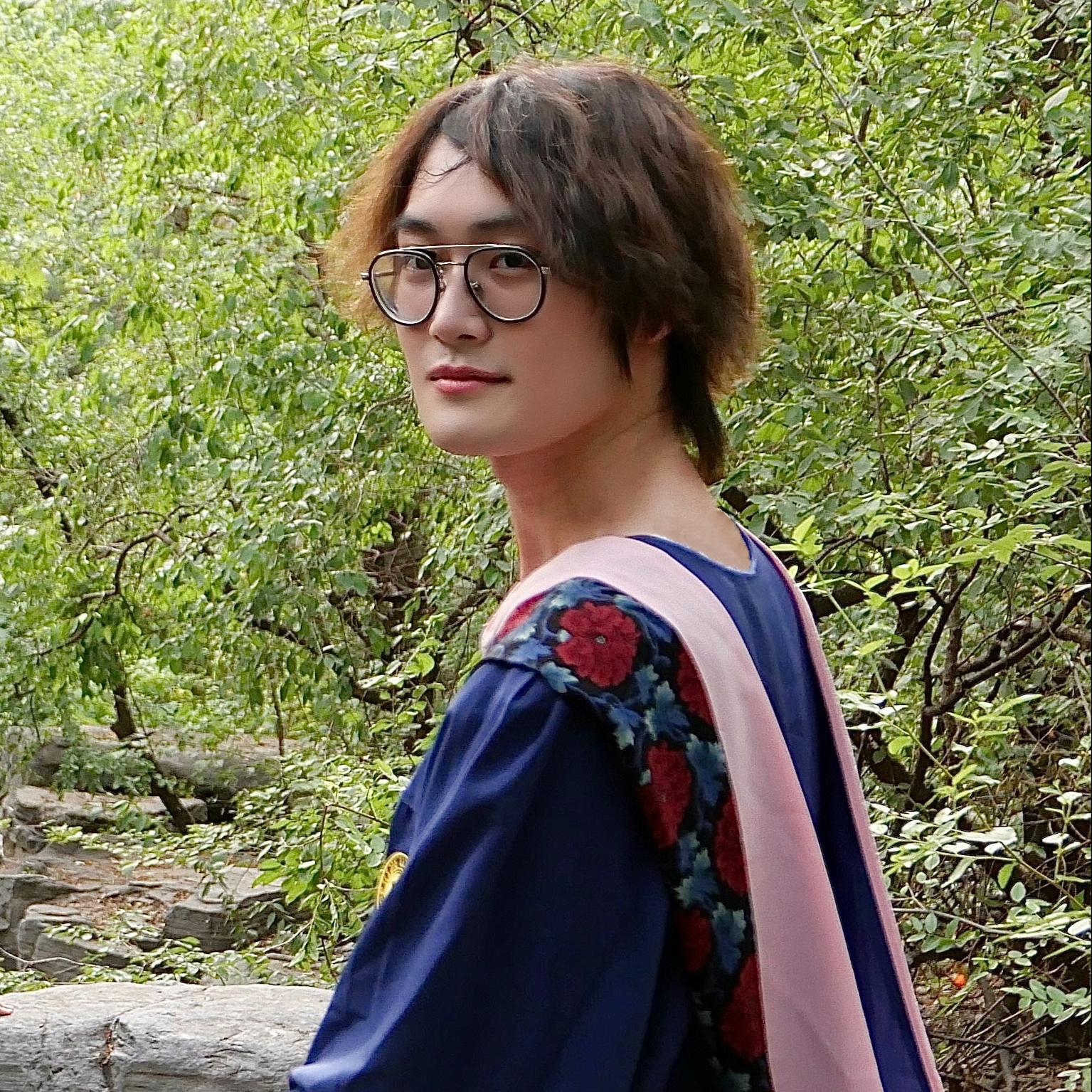Staff profile

| Affiliation | Telephone |
|---|---|
| Research Postgraduate in the Department of English Studies |
Biography
About Me
I am a Ph.D. student in Durham University’s Department of English Studies (since Jan 2024), supervised by Dr. Susan Valladares and co-supervised by Dr. Helen O’Connell, working on Restoration and Eighteenth-Century Comedy.
Before joining Durham, I studied in Peking University’s Department of Chinese Language and Literature (BA, 2016-2020) and its Institute of Comparative Literature and Comparative Culture (MA, 2020-2023, supervised by Professor Zhang Pei). My graduate research focuses on Shakespearean Drama, with a master thesis titled “‘Disembedding’ the Comedy Genre: A Study of Shakespeare’s Problem Plays.”
During the final year of my master’s program, I served as a teaching assistant for the graduate course ‘Western Literary Theory in the 20th Century’. Additionally, I conducted the tutorial class for the undergraduate course ‘Comparative Literature: An Introduction.’ I also had the opportunity to be an exchange student at Leuven University for the academic year 2021-2022.
Having been raised in Hong Kong, I have been serving as a Cantonese lecturer at Peking University since 2018. I was also once the Freshers Coordinator for the school’s Hong Kong Culture Association.
Research Topics
My current research focuses on the Marital Politics in English Comedies from the beginning of the Restoration to the 1737 Licensing Act. It examines how playwrights creatively adapted marriage, the conventional core element of the comedic genre, to the developing social and political realities of the period and, in doing so, clarifies the many and varied ways the genre worked and responded ideologically to the realities of its time.
Shakespearean Drama, and to a larger scale, English Early Modern Drama, mainly comedy, is another research field I am still proceeding with, as inherited from my master’s research. Currently I am working on a Chinese annotated scholarly edition of All’s Wells That Ends Well.
Other Research Interests
My primary interest is in the History of Genre and Genre Theory. In the generic study, the genre serves as the bridge to read texts between strictly aesthetic and culturally operative subjects. It aims to read how, under particular historical and social conditions, each form struggles to create an artistic-literary world of its own right by interpreting the varying modes of social consciousness. At the same time, it explores how the ideological import of a genre conflicts with the ideological implications of the material conditions of realistic society. In this context, a genre participates in the social and ideological production and reproduction, and can be interpreted as a vehicle for ideological contestation and social change.
Additionally, as a Comparatist, I have a significant research interest in the cross-cultural study of the Genesis of Genres in Chinese Early Modern Literature. The new genres that emerged in Chinese literature in the late nineteenth and early twentieth centuries were directly imported from foreign (mainly European) literature or “modernized-westernized” from local genres. My interest is primarily in the Chinese reception and interpretation of ideas from European/Western literature and their influence on the development of genres in Chinese literature. Considering that the Sino-Western circulation of literary concepts and movements was often mediated through Japanese intellectuals’ translations and introductions, this proposed study also aims to expand previous scholarship that only established dialogues between any two of the three mentioned cultures.
Indeed, genre study is a fundamental and essential research field in Comparative Literature, even without cross-cultural study, because a genre's membership (classification) is always determined by comparison and relation. I propose that when writers employ a particular genre, they constantly reconfigure and reconstruct the literary form to suit their creative genius, reader expectations, and socio-ideological-material conditions by appealing to their predecessors or literary conventions. Since this is a process of negotiation and recreation, the choice and use of a genre always create a dialogue between contemporary and traditional, literary space and material reality, author and receptor. This character aligns with the essence of Comparative Literature.
Last but not least, I am interested in the History of Literature and Its Writing. Investigating the formation and canonization of a particular nation or culture’s literary history within cultural and intercultural contexts, as well as literary historians’ perspectives and writing strategies, builds a dialogue between modern views and past objects. This comparative perspective allows me to reflect on the identified nature and characteristics of a particular literary tradition and interpret the reasons and limits of such identification. It is essential to continually reconsider and re-engage with the past to refresh our understanding of the past and, in doing so, maintain an active reflection of modernity. This is particularly relevant when the history of literature reflects the history of human intellect and perception of the world. This investigation also provides an opportunity to reflect on how and why people used to read and what shaped our current consciousness of literary history and notions, thereby suggesting what to read in the future.
All these interests are pertinent to reviewing and reinterpreting literary history by either investigating historical dialogues or establishing new dialogues between modern views and the past. They could be generally concluded as a perspective named "Classical Interpretation and/through Modern Criticism", which is the primary description of all my research interests.
I welcome any enquiries about my research and potential collaboration opportunities, please feel free to contact via email: hao.y.zhang@durham.ac.uk
Research interests
- Sixteenth to Eighteenth Century English Comedy
- Shakespearean Drama
- History of Genre and Genre Theory
- Genesis of Genre in Modern Chinese Literature: A Cross-Cultural Perspective
- Comparative Literature
- History of Literature and Its Writing

